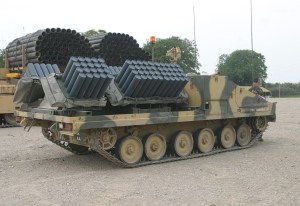The Ukrainian counteroffensive continues but it appears to be less intense. Ukraine has not made any significant progress so far, and in some cases, its forces have been pushed back.
The Russians have published some numbers on Ukrainian losses in September to date. Ukraine has lost more than 17,000 soldiers so far this month, Russian Defense Minister Sergey Shoigu told a ministry board meeting.
According to him, Kiev lost three Western-made tanks, including two German Leopards and a British Challenger.
The numbers also include the loss of seven US-made Bradley fighting vehicles, 77 US M777 howitzers, 51 self-propelled howitzers made in Germany, France, Poland and the United States.
The Russians say they destroyed a British-made Stormer air defense system. The Stormer is a military armored vehicle manufactured by the British company Alvis Vickers, now known as BAE Systems Land & Armaments, that uses laser-guided interceptors. It is supposed to destroy slow-flying aircraft, especially helicopters, and drones.

Some US Abrams tanks have arrived in Ukraine ahead of schedule. The head of Ukraine’s military intelligence Kyrylo Budanov, chief of the Main Directorate of Intelligence of the Ministry of Defense of Ukraine (GRO), says that the Abrams tanks should be reserved for special operations and not used for general combat because they will be destroyed.
Meanwhile this week, one of the Leopard tanks destroyed by the Russians had a three-man German crew. Two of the three crewmen were killed outright. The third crewman survived for a while and told the Russians he was a mechanic. It is far from clear why Germans were manning the tank. Is this a pattern for the future?
Russia also bombed a number of Ukrainian airfields and destroyed two MIG-29 aircraft and several aircraft hangers.
Russia also attacked Odesa port, destroying grain storage facilities and loading docks. Russian air bombardments of Ukrainian military and civil assets appeared to be fairly intense and continuing.
The Ukrainian claim that they killed Russian admiral Viktor Sokolov, Black Sea Commander, and 34 others when a Stormshadow missile hit the Russian admiralty HQ in Sevastopol. The claim appears to have been false.
The admiral appeared (by video) in a Russian commander’s meeting headed by Russian Defense Minister Shoigu. (He was not the only Navy commander to appear by video link.)
The Ukrainians are saying it was a fake video. However, it appears that their claims about the admiral’s death and the other “victims” were grossly exaggerated. The Russians say only one person died in the attack. The admiralty building was badly damaged and the area was blocked because of the ensuing fire.
The United States has come up with a lengthy statement of “priority reforms” presented at the Multi-Donor Coordination Platform for Ukraine held in Brussels. The US Embassy in Kiev released a copy to Ukraine.
It carries a number of proposals to combat corruption, part of it focused on defense procurement and part on the management of energy companies including Ukrenerg and Naftogas, and to establish supervisory boards (loaded with Americans) for Ukroboronprom (which manufactures 125mm ammunition), NABU (the anticorruption bureau of Ukraine) and SAPO (Special anticorruption prosecutors office), including independence from the Prosecutor General, aimed at blocking undue political influence on investigations.
One of the most startling proposals is to limit the scope of activity of the Ukrainian SBU (Security Service of Ukraine), which is Ukraine’s equivalent of the old Soviet KGB. The proposal is to limit SBU to counterintelligence, anti-espionage and fighting terrorism and cyber-terrorism.

The language is very broad and unclear. SBU is being used by Zelensky to suppress the opposition and carry out frequent arrests of anyone opposing the government for any reason.
It has also been used to launch attacks against the Russian Orthodox Church leaders and members, some of whom are being accused of selling weapons. SBU is also being used to enforce draft dodging. Presumably, the idea is to restrict it, but only a little.
It is unlikely that any of these rather limited “reforms” will be implemented. The fact that it was presented at a low political level in Brussels, and only as a draft proposal, indicates the Biden administration is not seriously trying to curb corruption in Ukraine.
Stephen Bryen is a senior fellow at the Center for Security Policy and the Yorktown Institute. This article was originally published on his Substack, Weapons and Strategy. Asia Times is republishing it with permission.

